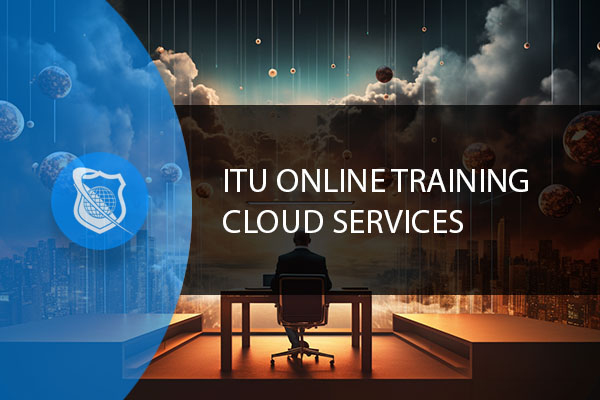What Is Trace Routing?
Definition: Trace Routing Trace Routing, often referred to as traceroute or tracert, is a network diagnostic tool used to display the route (path) and measure transit delays of packets across

In the ever-evolving landscape of cloud computing, two giants have consistently stood out: Microsoft Azure vs AWS. With over 20 years of experience in the field, I’ve seen these platforms grow from their infancy to the behemoths they are today. This blog aims to provide a side-by-side analysis of Microsoft Azure vs AWS, focusing on performance, pricing, features, and security. The objective is to help you make an informed decision on which cloud storage solution best suits your needs.
Amazon S3 leverages Amazon’s vast global infrastructure to deliver high-speed data transfers. This is particularly beneficial for businesses that require rapid file uploads or downloads, such as media companies or financial institutions dealing with large datasets. Amazon S3 uses multi-part uploads to accelerate the transfer of large files, breaking them into smaller parts and uploading them in parallel. This approach significantly reduces the time required for data transfers.
Microsoft Azure, on the other hand, has optimized its services for low-latency operations. This is crucial for applications that require real-time data access, such as IoT devices, gaming, and live streaming. Azure’s data centers are strategically located to minimize latency, and its use of Content Delivery Networks (CDNs) ensures that data can be accessed quickly from any location. Azure also offers Azure ExpressRoute, a service that provides a private, direct connection to Azure data centers, further reducing latency.

Become a highly skilled Microsoft Azure Administrator with our Azure administrator Career Path training series. This path include the core skills for Cloud, Network and Security with the CompTIA courses and then follows-up with our comprehensive AZ-104 Azure Administrator course. Elevate your career today.
Amazon S3’s architecture is designed for virtually unlimited scalability. This makes it an ideal choice for businesses that expect rapid growth in data storage needs. Amazon S3’s auto-scaling feature can automatically adjust storage capacity in response to changing demands, without requiring manual intervention. This is particularly useful for e-commerce platforms, social media companies, and any business where data storage needs can fluctuate dramatically.
Microsoft Azure’s scalability is somewhat constrained by the size and number of virtual machines you can deploy. While Azure does offer a variety of VM sizes to meet different needs, there is a ceiling to how much each VM can handle. However, Azure compensates for this by providing a range of services designed for different scalability needs, such as Azure Blob Storage for unstructured data and Azure SQL Database for relational data.
Amazon S3 benefits from Amazon’s extensive global network of data centers. This network not only ensures high availability but also allows for geo-redundancy, meaning your data can be stored in multiple locations worldwide. This is a significant advantage for businesses that operate globally, as it ensures that data is always accessible, even if one data center experiences an outage.
Microsoft Azure also offers a high level of reliability, backed by a Service Level Agreement (SLA) guaranteeing 99.9% uptime. While Azure’s global network is not as extensive as Amazon’s, it is continually expanding. Azure also offers redundancy options, such as Azure Site Recovery, which provides disaster recovery capabilities to ensure data integrity and availability.
Amazon S3 operates primarily on a pay-as-you-go pricing model, which means you only pay for the storage and services you actually use. This model is particularly beneficial for startups and small businesses that may not have a predictable level of data storage needs. It allows for flexibility and scalability without the burden of upfront costs or long-term commitments.
Microsoft Azure, on the other hand, offers a more flexible approach to pricing. In addition to the pay-as-you-go model, Azure also provides subscription-based plans. These plans can be advantageous for larger enterprises that have a more predictable level of resource usage and prefer budgeting for long-term commitments. However, the multiple options can also introduce complexity in billing and may require more time to manage.
While Amazon S3’s pricing is generally straightforward, there are additional costs to consider. These can include fees for data transfer out of the Amazon network, as well as costs for additional services like data analytics or machine learning capabilities integrated with your storage. It’s essential to read the fine print and calculate these potential costs when budgeting.
Microsoft Azure also has its share of hidden costs, which can include fees for specific services like Azure Active Directory or premium networking features. Azure’s pricing can be complex due to the variety of services and pricing models, so it’s crucial to thoroughly review pricing documentation and even consult Azure’s cost management tools.

Earning the AWS Cloud Practitioner certification signifies a robust understanding of the AWS Cloud platform, marking an individual as a knowledgeable professional in the rapidly growing field of cloud computing. This certification not only validates one’s foundational cloud skills but also demonstrates a commitment to staying abreast of technological advancements.
Amazon S3 offers a variety of storage classes designed for different use-cases. These include:
Each storage class has its own pricing model and performance characteristics, allowing you to tailor your storage solution to your specific needs.
Microsoft Azure provides a broader range of storage types, including:
The diversity of storage types makes Azure adaptable to a wide range of applications but can also complicate the decision-making process.
Amazon S3 specializes in object storage, making it ideal for storing unstructured data like media files, backups, and big data. S3 provides a range of data management tools, including versioning, lifecycle policies, and event notifications, to help you manage your data effectively.
Microsoft Azure stands out for its hybrid storage solutions, which allow for seamless integration with on-premises servers. This is particularly beneficial for enterprises that have existing on-premises infrastructure and are looking to transition to the cloud gradually. Azure offers services like Azure StorSimple and Azure File Sync to facilitate this integration.

At ITU, we offer an exclusive Cloud Computing training series designed to prepare you for certification and/or to help you gain knowlege of all Cloud based platforms including AWS, Azure and Gooogle Cloud.
Get access to this exclusive Cloud Computing Training today.
Amazon S3 offers robust encryption features, including server-side encryption with S3-managed keys (SSE-S3), server-side encryption with AWS Key Management Service (SSE-KMS), and server-side encryption with customer-provided keys (SSE-C). These options give you the flexibility to choose the level of security that best fits your needs.
Microsoft Azure also provides strong encryption methods, including Azure Storage Service Encryption for data at rest and Azure SSL/TLS for data in transit. What sets Azure apart is its extensive list of compliance certifications. In addition to GDPR, HIPAA, and FedRAMP, Azure also complies with other international and industry-specific standards like ISO 27001, making it a strong choice for businesses that operate under strict regulatory requirements.
Amazon S3 uses Identity and Access Management (IAM) to provide fine-grained control over user permissions. IAM allows you to create policies that control who can access specific buckets and objects within those buckets. This is particularly useful for organizations that need to restrict access to sensitive data.
Microsoft Azure employs Azure Active Directory for access control, which is particularly beneficial for larger enterprises with complex organizational structures. Azure AD integrates seamlessly with existing on-premises Active Directory and provides advanced features like multi-factor authentication and conditional access based on user behavior and location.

Become a highly skilled Microsoft Azure Administrator with our Azure administrator Career Path training series. This path include the core skills for Cloud, Network and Security with the CompTIA courses and then follows-up with our comprehensive AZ-104 Azure Administrator course. Elevate your career today.

Earning the AWS Cloud Practitioner certification signifies a robust understanding of the AWS Cloud platform, marking an individual as a knowledgeable professional in the rapidly growing field of cloud computing. This certification not only validates one’s foundational cloud skills but also demonstrates a commitment to staying abreast of technological advancements.
Choosing between Microsoft Azure vs AWS is not a straightforward task and depends on various factors like performance, pricing, features, and security. Both platforms have their strengths and weaknesses, but your specific needs will ultimately determine the best fit. With over two decades in the field, I can attest that either choice offers robust, reliable cloud storage solutions that can meet the demands of modern businesses.
workloads, offering a balance of compute, memory, and storage optimized for tasks that require intensive computation. These instances provide high-speed networking, low-latency storage, and powerful CPUs, making them ideal for simulations, computational finance, seismic analysis, and other demanding HPC applications. Their optimized configuration helps reduce the time to results and increase efficiency in HPC operations.
Compared to other EC2 instances, Hpc6id instances are fine-tuned for HPC workloads, offering higher bandwidth, enhanced networking capabilities, and better storage performance. This specialization ensures that HPC applications can run more efficiently by leveraging the high-speed networking for MPI (Message Passing Interface) tasks, optimized local storage for temporary data processing, and compute-optimized resources for intensive calculations.
Yes, Amazon EC2 Hpc6id Instances are fully compatible with existing AWS tools and services, allowing users to seamlessly integrate them into their current AWS infrastructure. This includes services like Amazon S3 for storage, AWS Batch for job scheduling, and AWS CloudFormation for resource provisioning and management, among others. This integration facilitates the management and scaling of HPC workloads with ease and efficiency.
Amazon EC2 Hpc6id Instances follow the pay-as-you-go pricing model common to AWS services, allowing users to pay for only the compute capacity they use with no upfront costs. Pricing varies based on the instance size, region, and options such as On-Demand Instances, Reserved Instances, or Spot Instances. This flexibility helps users optimize their costs based on their specific workload requirements and budget.
To get started with deploying HPC workloads on Amazon EC2 Hpc6id Instances, you first need to set up an AWS account. Once your account is ready, you can launch Hpc6id instances using the AWS Management Console, AWS Command Line Interface (CLI), or AWS SDKs. AWS provides detailed documentation and templates to help configure and deploy your HPC environment efficiently. It’s also recommended to leverage AWS’s best practices for security, networking, and storage to ensure optimal performance and reliability of your HPC applications.
You may also like
AWS Elastic Load Balancer: Maximizing Scalability and Reliability
Network Latency: Testing on Google, AWS and Azure Cloud Services
Amazon EC2 Hpc6id Instances – The Solution for HPC Workloads
Lorem ipsum dolor sit amet, consectetur adipiscing elit. Ut elit tellus, luctus nec ullamcorper mattis, pulvinar dapibus leo.
$49.99 Original price was: $49.99.$16.99Current price is: $16.99. / month with a 10-day free trial
Definition: Trace Routing Trace Routing, often referred to as traceroute or tracert, is a network diagnostic tool used to display the route (path) and measure transit delays of packets across
Definition: Information Kiosk An information kiosk is a standalone device designed to provide information and services through an interactive interface to users in public spaces. These devices, often equipped with
Definition: Extended Reality (XR) Platform An Extended Reality (XR) platform refers to a comprehensive digital environment that facilitates the creation, management, and deployment of immersive experiences across the spectrum of
Definition: Liskov Substitution Principle The Liskov Substitution Principle (LSP) is one of the five SOLID principles of object-oriented design, introduced by Barbara Liskov in 1987. It states that objects of
Definition: Triple Fault A triple fault occurs within the context of x86 architecture-based computer systems when the processor encounters a third consecutive exception while trying to invoke the Double Fault
Definition: Distributed Ledger A distributed ledger is a type of database that is consensually shared and synchronized across multiple sites, institutions, or geographies, accessible by multiple people. It allows transactions
Definition: Service Level Agreement (SLA) A Service Level Agreement (SLA) is a formal document that defines a set of agreed-upon terms and conditions between a service provider and the end
Definition: Jump Server A jump server, also known as a jump host or gateway, is a secured and controlled server that acts as an intermediary between a user’s workstation and
Definition: Python Pygame Python Pygame is a set of Python modules designed for writing video games. It adds functionality on top of the excellent SDL library, enabling the creation of
Definition: Off-the-Record Messaging (OTR) Off-the-Record Messaging (OTR) is a cryptographic protocol that provides encryption for instant messaging conversations. OTR ensures that messages are not only encrypted but also authenticated, meaning
Definition: Man-in-the-Middle (MITM) Attack A Man-in-the-Middle (MITM) attack is a cybersecurity threat where an attacker secretly relays and possibly alters the communication between two parties who believe they are directly
Definition: Grid Layout CSS The CSS Grid Layout, commonly referred to as Grid, is a two-dimensional layout system for the web that allows developers to create complex designs easily and
ENDING THIS WEEKEND: Train for LIFE at our lowest price. Buy once and never have to pay for IT Training Again.